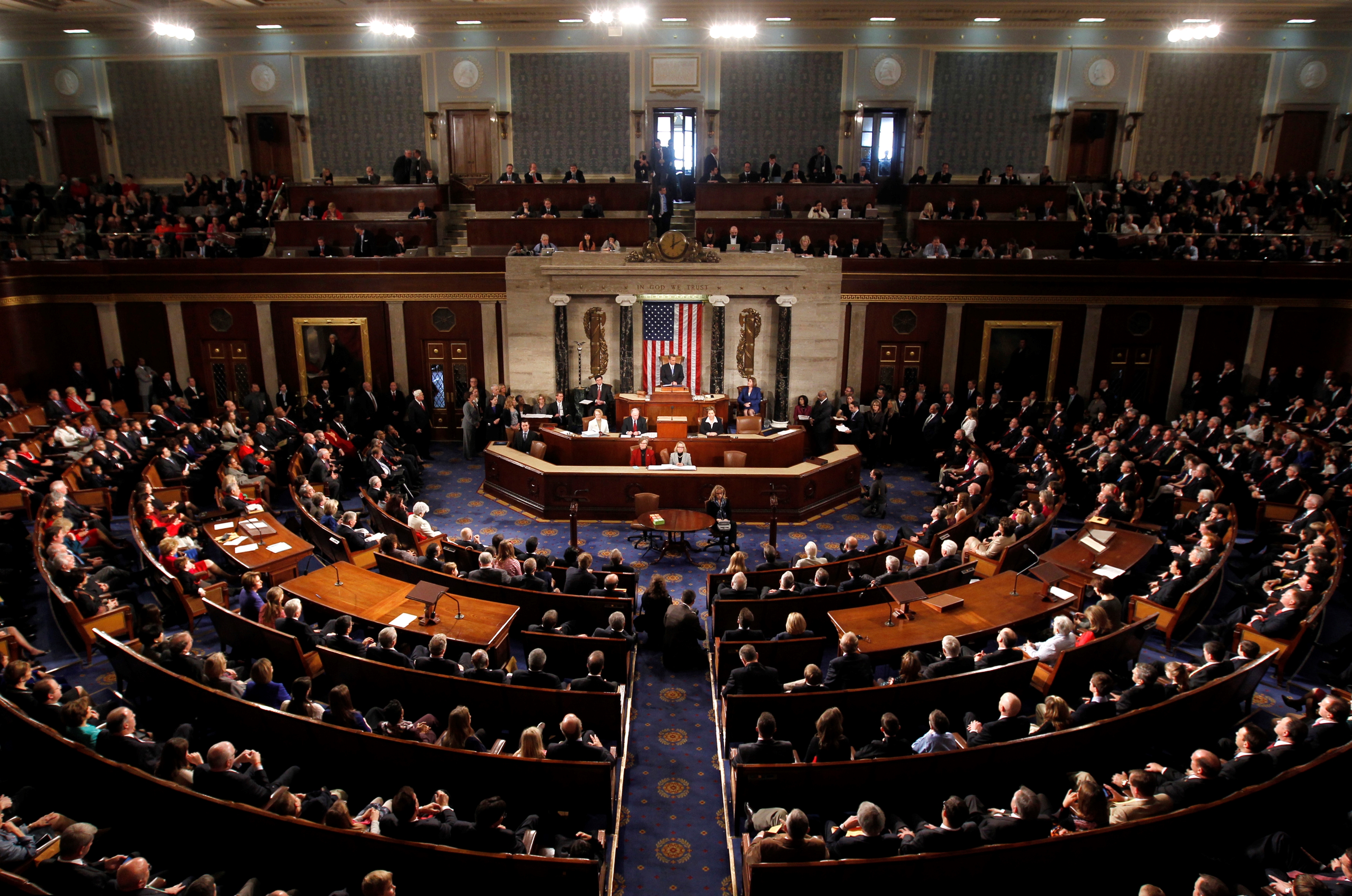US aims to boost 'Israel', Arab states military co-op against Iran
The United States wants to broaden the scope of normalization as well as cooperation between Arab states and the Israeli occupation just to bolster its presence against Iran.
-

The US congress in session
The Department of State in Washington, DC, would join efforts with the Israeli occupation and several Arab states to bolster their aerial military capacities, which would offer them "protection" against Iran. The collaboration was part of proposed bipartisan legislation that will be introduced in Congress on Thursday.
This constitutes a new attempt by the US to strengthen its allies in West Asia following the signing of several normalization agreements between Arab states and the Israeli occupation.
Congressional aides have stressed that this proposal would prompt them to cooperate closely within the region.
The military aid would be provided to Saudi Arabia, Qatar, and the rest of the Gulf Cooperation Council (GCC), as well as Egypt, Iraq, Jordan, and the Israeli occupation. The draft legislation said the parties to the agreement would be provided with a wide array of arms and equipment that would "protect" them "from cruise and ballistic missiles, manned and unmanned aerial systems, and rocket attacks from Iran, and for other purposes."
Egypt and Jordan had normalized ties with "Tel Aviv" in 1980 and 1994, respectively, while Bahrain and the UAE joined the negotiations table with the occupation decades later in 2020 under the auspices of the United States. Iraq and the rest of the GCC, on the other hand, did not join the flock of normalizers yet.
Congress has long been championing security cooperation between Arab states and the Israeli occupation, especially after the latest round of normalization in 2020. This comes as "Tel Aviv" and Riyadh are expanding cooperation in several areas, mainly in the trade sector.
Israeli media reported Wednesday that relations between "Israel" and Saudi Arabia, "the most important Arab state in the Gulf", were growing warmer, with a new agreement on the horizon that will bring about new flight paths from occupied Palestine and through Saudi airspace
Though Riyadh did not normalize ties with the Israeli occupation yet, unlike Abu Dhabi and Manama, it has already kicked off economic normalization with "Tel Aviv". The Kingdom is already issuing special visas to Israeli settlers, with Israeli and Saudi sources saying there has been a hike in signed deals recently and advanced contact concerning investments of Saudi businessmen and investment funds in "Israel".
Dozens of Israeli businessmen traveled to Saudi Arabia for trade deals in recent months, Israeli media reported in late May.
The bids for the Israeli occupation to collaborate closely with regional states are underway due to the parties' shared "concerns" about Iran, the Washington Post reported.
Greater cooperation between "Tel Aviv" and its regional allies is pushing US lawmakers to discuss ways their military could operate differently in West Asia, as per Jon Alterman, a senior vice president of the Center for Strategic and International Studies.
All of the names on the bill are either partners or allies of the United States, and though they all get the majority of their air defense systems from Washington, which also helps them figure out how to operate them, the US reportedly does not cooperate with the, and according to security experts, closer cooperation would provide all the members to the agreement with a better early warning system.
If the bill makes it through the House of Representatives and passes the Senate floor, the Arab states will see themselves sharing a radar with the Israeli occupation.
It is worth noting, however, that relations between the United States and Saudi Arabia have been souring lately, especially as Washington is asking the Gulf states to pump out more oil to "stabilize" the energy market tilted by the anti-Russian sanctions while the latter is declining its requests.

 4 Min Read
4 Min Read








